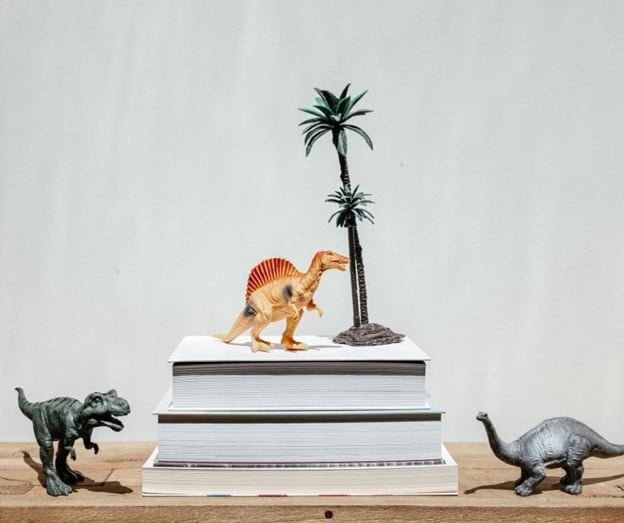Cultivating Curiosity in Young Learners
Cultivating Curiosity in Young Learners
How can we inspire a love for learning in our children that lasts a lifetime? As parents, we often ponder this question, recognizing that curiosity is the key to unlocking their potential. Cultivating curiosity in young learners goes beyond academic success; it fosters creativity, critical thinking, and a thirst for knowledge.
In this guide, we’ll explore practical tips to nurture curiosity in our children, setting them on a path of lifelong learning and fulfillment.

Understanding Curiosity in Young Learners
Curiosity begins early in childhood and evolves through different stages. Toddlers exhibit curiosity through exploration, touching, and tasting everything they encounter. As they grow, children start asking questions to satisfy their curiosity about the world around them. A preschooler may constantly inquire about why the sky is blue or how plants grow. By understanding these developmental stages, parents can tailor their approach to encourage and support their child’s curiosity effectively.
Strategies for Cultivating Curiosity
- Encourage Hands-On Exploration:
Provide opportunities for your child to engage in hands-on activities that stimulate their senses and spark their curiosity. Take them to interactive museums, science centres, or nature parks where they can touch, see, and explore.
A trip to the Singapore Science Centre can inspire awe and curiosity as children experiment with various exhibits and learn about the wonders of science through play.
A visit to the Singapore Botanic Gardens can deepen their understanding of biology and ecology while igniting their curiosity about nature and biodiversity.

- Promote Questioning and Inquiry:
Parents can create a culture of curiosity at home by encouraging their children to ask questions and seek answers. Embrace their curiosity by providing thoughtful responses and engaging in meaningful conversations.
It is better to encourage them to question the world around them and explore their interests further.
Imagine that during dinner, your child looks up at the sky and asks, “Why does the moon change its shape?” Instead of simply providing a straightforward answer, you seize the opportunity to foster their curiosity further. You respond by saying, “That’s a great question! Let’s explore it together.” You then engage your child in a conversation about the phases of the moon, discussing how its position relative to the Earth and the Sun causes its appearance to change over time.
You might pull out a book to show visual representations of the moon’s phases, allowing your child to see the concepts come to life. As you delve deeper into the topic, you encourage your child to ask more questions, such as why the moon appears bigger sometimes or why it’s sometimes visible during the day.
mbracing your child’s curiosity and providing thoughtful responses, you not only satisfy their immediate question but also inspire them to think critically and explore the world around them. This meaningful conversation creates a positive learning environment at home where curiosity is valued and encouraged, setting the stage for future inquiries and discoveries.
- Nurture Creativity Through Play:
Foster creativity in your child by providing them with ample opportunities for unstructured play. It is helpful to set aside time for imaginative play where they can role-play, build, and create freely. Offer a variety of materials such as art supplies, building blocks, or dress-up costumes to inspire their creativity. For example, a box of recyclables can become a treasure trove of materials for a DIY spaceship, encouraging your child to think outside the box and explore new ideas.
- Foster a Culture of Reading:
Parents can cultivate curiosity in their children by fostering a love for reading and encouraging them to explore topics of interest through books, articles, and other forms of literature. By providing access to a variety of reading materials and engaging in discussions about what they read, parents can stimulate their children’s curiosity and expand their knowledge base.
Suppose your child expresses an interest in dinosaurs after watching a documentary at school. You take this opportunity to visit the local library together and select a few books about dinosaurs, fossils, and prehistoric life. As your child flips through the pages, they become fascinated by the different species, habitats, and scientific discoveries related to dinosaurs.
Furthermore, parents consider incorporating reading into their daily routine by setting aside time for family reading sessions or bedtime stories. By exposing your child to a wide range of topics and encouraging them to ask questions and seek answers through reading, you instill a lifelong love for learning and curiosity in your child.

- Encourage a Growth Mindset:
Parents can foster a growth mindset in their children by praising their efforts and resilience rather than focusing solely on their achievements. You teach them that mistakes are opportunities for learning and growth, and encourage them to embrace challenges with a positive attitude. By cultivating a mindset of curiosity and perseverance, you empower your child to overcome obstacles and pursue their interests with passion and determination.

Conclusion
Cultivating curiosity in young learners is a journey that requires patience, encouragement, and active engagement from parents. By understanding the stages of curiosity development and implementing effective strategies like providing hands-on experiences, stimulating creativity, and connecting learning to real-world relevance, parents can inspire a love for learning in their children.
At Mulberry Learning, we embrace the Reggio Emilia approach, which places a strong emphasis on nurturing children’s innate curiosity and creativity. Through our child-led, inquiry-based curriculum, we provide opportunities for hands-on exploration, collaborative learning experiences, and connections to the world around them. By engaging children in meaningful projects and encouraging them to ask questions, investigate, and discover, we empower them to become confident, independent learners who are curious about the world around them.
Together, let’s nurture curiosity and empower our children to explore, question, and discover the wonders of the world around them. You will never know who your child can become!
Mulberry School Tour
Our Locations
Click here to visit our Contact Us page and view the preschool/infant care centres conveniently located near you.
CONNECT WITH US
USEFUL LINKS
About Us
Mulberry Learning prides itself on making the preschool experience both memorable and enjoyable while transforming a child into a competent explorer, an imaginative thinker, and a creative problem solver. Through our proprietary award-winning curriculum, unique Habits of Mind programme and dedicated staff who are passionate about imparting positive attitudes, Mulberry Learning holds strong in its promise to deliver a holistic education that nurtures the Future Ready Child.
A PREMIUM PRESCHOOL BRAND UNDER GLOBAL EDUHUB


